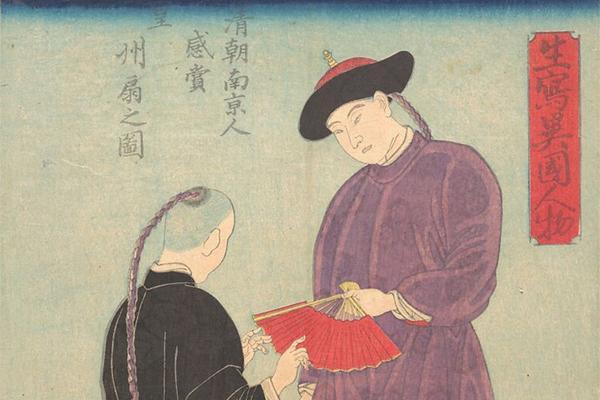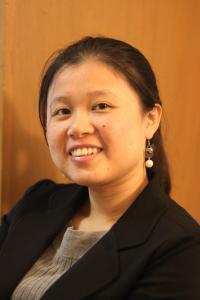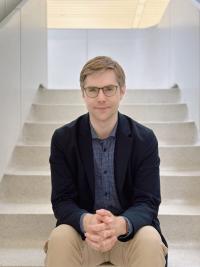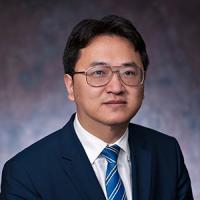
The Institute for Chinese Studies and Department of East Asian Languages and Literatures presents:
Qing China: Transnational and Comparative Perspectives Symposium
On Oct. 5, Professor Pamela Crossley will deliver the 2023 Chu Lecture entitled “The Evolving History of the Qing Empire: The New Nineteenth Century” (4:30-6pm, 165 Thompson Library). In connection to Professor Crossley’s lecture, the Institute for Chinese Studies has organized a symposium with three scholars who will present their exciting research on the Qing empire from the 18th to the 20th century. This symposium will showcase new scholarship that examines the Qing empire from transnational and comparative perspectives. We invite students and scholars who are interested in comparative empires, global trade, religious studies, and ethnicity to engage in an intellectually stimulating conversation at this event. Download the PDF flyer here.
Presenters and abstracts:
“From Foreign Tribute to State Property: Building Jade Industry and Empire in Eighteenth-Century China”
Yulian Wu, Associate Professor, History Dept., Michigan State University

Nephrite jade, a stone known for its hardness and beauty, has held a revered position thorough Chinese history due to its rich cultural and political connotations intertwined with Confucian ideology. This mineral, however, acquired new significance when the Manchu court of the Qing dynasty (1644–1911) expanded the rule into the Inner Asian territory of Xinjiang in 1759 and placed a premium on locally mined jade. This presentation traces the establishment and development of jade industry by exploring how jadestone was quarried, crafted, and conceptualized in eighteenth-century China. By illuminating the transformation of nephrite jade's political identity - from a foreign tribute to a state property – I aim to provide a fresh perspective on the dynamic interplay among the mineral, craftsmanship, and the endeavor of empire building in early modern China.
"Fengshui in Chinese Law and History: The Qing Empire”
Tristan Brown, S.C. Fang Chinese Language and Culture Career Development Professor, History Dept., MIT

Based on the author's forthcoming book, Laws of the Land: Fengshui and the State in Qing Dynasty China (Princeton, 2023), this talk explores fengshui’s invocations in Chinese law during the Qing dynasty. Facing a growing population, dwindling natural resources, and an overburdened rural government, judicial administrators across China grappled with disputes and petitions about fengshui in their efforts to sustain forestry, farming, mining, and city planning. Laws of the Land offers a radically new interpretation of these legal arrangements: they worked. An intelligent, considered, and sustained engagement with fengshui on the ground helped the imperial state keep the peace and maintain its legitimacy, especially during the increasingly turbulent decades of the nineteenth century. As the century came to an end, contentious debates over industrialization swept across the bureaucracy, with fengshui invoked by officials and scholars opposed to the establishment of railways, telegraphs, and foreign-owned mines. Demonstrating that the only way to understand those debates and their profound stakes is to grasp fengshui’s longstanding roles in Chinese public life, Laws of the Land rethinks key issues in the history of Chinese law, politics, science, religion, and economics.
“The Genesis of the Modern Chinese Revolution: Ethnic Particularism and Religious Universalism”
Yang Zhang, Assistant Professor, School of International Service, American University

The century-long Chinese revolution commenced with the Taiping Revolution and simultaneous Muslim uprisings in the mid-19th century in the Qing dynasty (1644-1911), but their revolutionary nature has not been fully understood. In my talk, I will contend that this wave of revolution was less driven by class struggle or elite conflicts than being the result of ideological struggles between competing universalist interpretations of the legitimate order and the growing ethnic awareness that fueled resistance against the imperial rule. Furthermore, it was ethnic particularism under religious universalism that made this wave of revolutions fragmented yet full-blown. Such ethno-religious entanglement became a recurrent pattern throughout modern China’s nation-empire project, playing a consequential, albeit overlooked, role in subsequent republican and communist revolutions. This pattern also explains post-revolution politics in present-day PRC. Reevaluating the modernity project through ethno-religious and imperial lenses, I hope to renew a theoretical tradition in historical sociology initiated by Max Weber, Ernest Gellner, and Joseph Levenson by engaging with the ongoing cultural and imperial turn in the field.
Commentators:
Pamela Crossley (Collis Professor of History, Emerita, Dartmouth College)
Peter Bang (Associate Professor, the Saxo Institute, University of Copenhagen)
